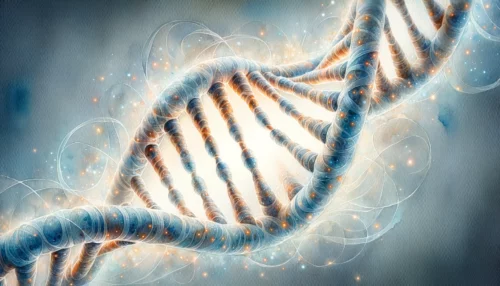Salvation is the entry point to a journey of transformation in Christ, but does it give us a license to sin? The grace we receive through salvation is a precious gift, a divine act of mercy that washes away our past, present, and future sins. But if this grace is already ours, why should we avoid sinning?
The Concept of Grace and Salvation
When we begin to consider the ideas of grace and salvation, we are stepping into one of the most beautiful facets of our Christian faith. Grace, in the Christian context, can be thought of as unmerited favor or kindness from God, extended to us even though we don’t deserve it (Ephesians 2:8-9). This grace is what enables us to receive the gift of salvation.
Salvation, in the Christian faith, is the divine act of delivering us from sin and its consequences, ultimately leading us to eternal life with God (Romans 6:23). It’s a process initiated by God, achieved by the sacrifice of Jesus Christ on the cross, and completed when we accept this gift by faith.
The idea of faith is essential here. Faith, as described in the New Testament, isn’t a mere mental assent to certain truths, but a personal, active trust in Christ (James 2:17). It’s through this faith that we accept the gift of salvation, realizing our need for a savior and acknowledging Jesus as that savior.
But salvation isn’t a moment; it’s a journey. It begins with a point of faith – the moment we believe in Jesus – but it continues throughout our lives. This journey is often referred to as sanctification, the process of becoming more like Christ (2 Corinthians 3:18). Through sanctification, we learn to let go of our sinful nature and embrace the nature of Christ. This is a lifelong process, enabled by the grace of God, and it is essential to our understanding of why we should avoid sin even after being saved.
Salvation also carries an element of promise. When we accept Christ, we are promised eternal life with God (John 3:16). This eternal life isn’t simply about quantity – living forever – but about quality. It’s a life lived in relationship with God, in his presence, freed from the power and penalty of sin.
Grace is God’s unmerited favor or kindness extended to us, enabling us to receive the gift of salvation. Salvation is a divine act of delivering us from sin and its consequences, leading to eternal life with God. This process is initiated by God, achieved through Jesus Christ’s sacrifice, and completed when we accept it by faith. Salvation is not just a moment but a lifelong journey of sanctification, becoming more like Christ, enabled by God’s grace. With salvation comes the promise of eternal life, a life lived in relationship with God, freed from the power and penalty of sin.
The Misunderstanding of Grace as a License to Sin
A misunderstanding that sometimes crops up within Christian circles is the idea that grace, once bestowed, gives license to continue in sinful behavior. This perspective treats the magnificent gift of salvation as a “get out of jail free card” for sin, where one can live without regard for God’s commands, all the while covered by the safety net of grace (Romans 6:1-2).
This understanding is problematic and betrays a fundamental misinterpretation of the nature of God’s grace. Grace is not a permit for wrongdoing, rather it’s the power God gives to overcome sin (Romans 6:14). It’s intended to cause transformation within us, leading to a life in harmony with God’s will and not in rebellion against it.
Sin, as described in the Bible, is not merely a list of dos and don’ts but a condition of the human heart that is in rebellion against God (Romans 3:23). God’s grace doesn’t merely cover this condition like a blanket, but it goes to the root to bring about a change. This transformative power of grace is aimed at overcoming this rebellious condition of our hearts and aligning us with God’s will.
Salvation is not a simple eradication of the penalty of past sins, but a deliverance from the power of sin itself (Romans 6:6-7). This means that when we come to Christ and receive His salvation, we’re not just pardoned for past wrongs, but we’re given the capacity, through the indwelling of the Holy Spirit, to resist sin and live righteously.
And here lies the crux of the misunderstanding: seeing salvation as a one-time event rather than an ongoing journey of transformation. It’s not merely about escaping punishment, but about becoming a new creation, growing in the likeness of Christ and living in a manner pleasing to God (2 Corinthians 5:17).
A common misunderstanding is the view of grace as a license to continue sinning, an idea that treats the gift of salvation merely as a free pass for sinful behavior. But grace, according to the biblical narrative, is not a permit for sin but the power to overcome it. Sin is a condition of the heart in rebellion against God, and grace is designed to bring about transformation to align our hearts with God’s will. Salvation is not just about forgiveness of past sins but deliverance from the power of sin, leading to a life lived righteously. Salvation should be seen as an ongoing journey of transformation, about becoming a new creation and growing in the likeness of Christ.
Living in Righteousness: The True Response to Grace
The appropriate response to God’s grace isn’t to continue in sin, but to live a life of righteousness. Righteousness, in a biblical context, is a state of moral uprightness, a life lived in line with God’s standards (1 John 3:7). And God’s grace empowers us to live this way.
When we receive God’s grace, it instigates a change in us, a new birth so to speak (John 3:3). We don’t just remain as we were, sinners saved by grace, but we become new creations (2 Corinthians 5:17). This newness isn’t superficial; it’s a deep, transformative change that affects how we live and behave. Our lives should then be marked by righteousness, a reflection of the divine nature we’ve partaken of (2 Peter 1:4).
Righteous living isn’t a burdensome requirement; it’s the natural fruit of a life touched by grace. The Holy Spirit, who dwells in us as believers, works to produce this righteousness in our lives (Galatians 5:22-23). It’s not about striving in our strength to follow a set of rules, but allowing the Spirit’s work within us to transform our desires and actions.
This righteousness is also a testimony to the world around us. Our lives, lived in righteousness, demonstrate the power of God’s grace and the reality of His kingdom (Matthew 5:16). It’s not just about avoiding sin for the sake of personal purity, but about reflecting God’s character to those around us.
Choosing to live in righteousness after receiving salvation also reflects our love for God. If we truly love God and appreciate His grace, we’ll desire to live in a manner that pleases Him (John 14:15). Righteousness is not a means to earn God’s favor but a response to the love He has already shown us.
The appropriate response to God’s grace is to live a life of righteousness, moral uprightness in line with God’s standards. Grace initiates a transformative change in us, making us new creations whose lives should reflect divine nature. Righteous living is the natural outcome of a life touched by grace and it is facilitated by the Holy Spirit’s work within us. This righteousness is a testimony to God’s grace and kingdom, reflecting His character to the world. Choosing to live righteously after salvation is also an expression of our love for God, a desire to live in a way that pleases Him.
Transforming Grace: The Pursuit of Righteousness
We’ve charted the course of our faith, from the beautiful gift of grace and salvation through Jesus Christ, to the common misunderstanding of grace as a license to sin, and finally the true response to grace, which is a life lived in righteousness. Through this, we have seen that grace isn’t a free pass to sin but the divine empowerment for transformation. Salvation is not just about being saved from the penalty of sin, but it also involves a radical transformation, a turning away from sin towards a life pleasing to God.
For your reflection:
- How does understanding grace as a divine empowerment for transformation impact your daily life?
- How do you express your love for God through righteous living?
- How does your life serve as a testimony to God’s grace and kingdom?
May we, as recipients of God’s unfathomable grace, bear witness to this grace by living lives marked by righteousness. May our lives be not just a testament to the fact that we have been saved from sin, but a shining example of lives transformed and empowered by God’s grace. With faith, let us continue to strive for righteousness, not because we have to earn God’s love, but because we have already received it.














